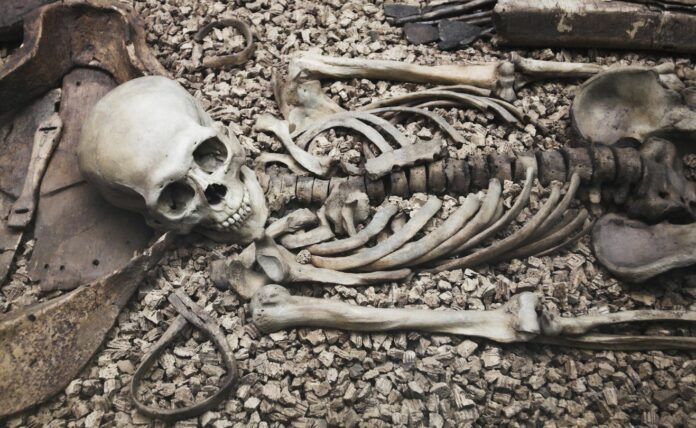Ancient DNA, including samples from human remains that are about 45,000 years old, has helped researchers uncover a previously unknown element of human evolution.
Ancient DNA, including samples from human remains that are about 45,000 years old, has helped researchers reveal the hidden history of human evolution.
The new study, which was co-led by Dr. Yassine Souilmi, Group Leader at the Australian Centre for Ancient DNA at the University of Adelaide, was recently published in Nature Ecology and Evolution.
“It was widely believed,” according to the author, “the genetics of our human ancestors didn’t change due to environmental pressures as much as other animals, due to our enhanced communication skills and ability to make and use tools.
“However, by comparing modern genomes with ancient DNA, we discovered more than 50 cases of an initially rare beneficial genetic variant becoming prevalent across all members of ancient human groups.
“In contrast to many other species, evidence for this type of adaptive genetic change has been inconsistent in humans. This discovery consequently challenges the prevailing view of human adaptation, and gives us a new and exciting insight into how humans have adapted to the novel environmental pressures they encountered as we spread across the planet.”
Co-lead author Dr. Ray Tobler, who is an Adjunct Fellow at the University of Adelaide and a DECRA fellow at the Australian National University, said that looking at ancient DNA was key to figuring out how humans evolved.
According to Dr. Tobler, “we thought historical intergroup mixing events might have concealed signs of genetic changes in modern human genomes.”
“We examined DNA from more than 1,000 ancient genomes, the oldest which was around 45,000 years old, to see if certain types of genetic adaptation had been more common in our history than studies of modern genomes had suggested.”
“The use of ancient genomes was crucial,” adds Senior author Professor Christian Huber, “because they preceded major historical mixing events that have radically reshaped modern European genetic ancestry.
“This allowed the recovery of historical signs of adaptation that are invisible to standard analysis of modern genomes.”
Source: 10.1038/s41559-022-01914-9
Image Credit: iStock
You were reading: Ancient DNA Reveals A Previously Unknown Aspect Of Human Evolution
